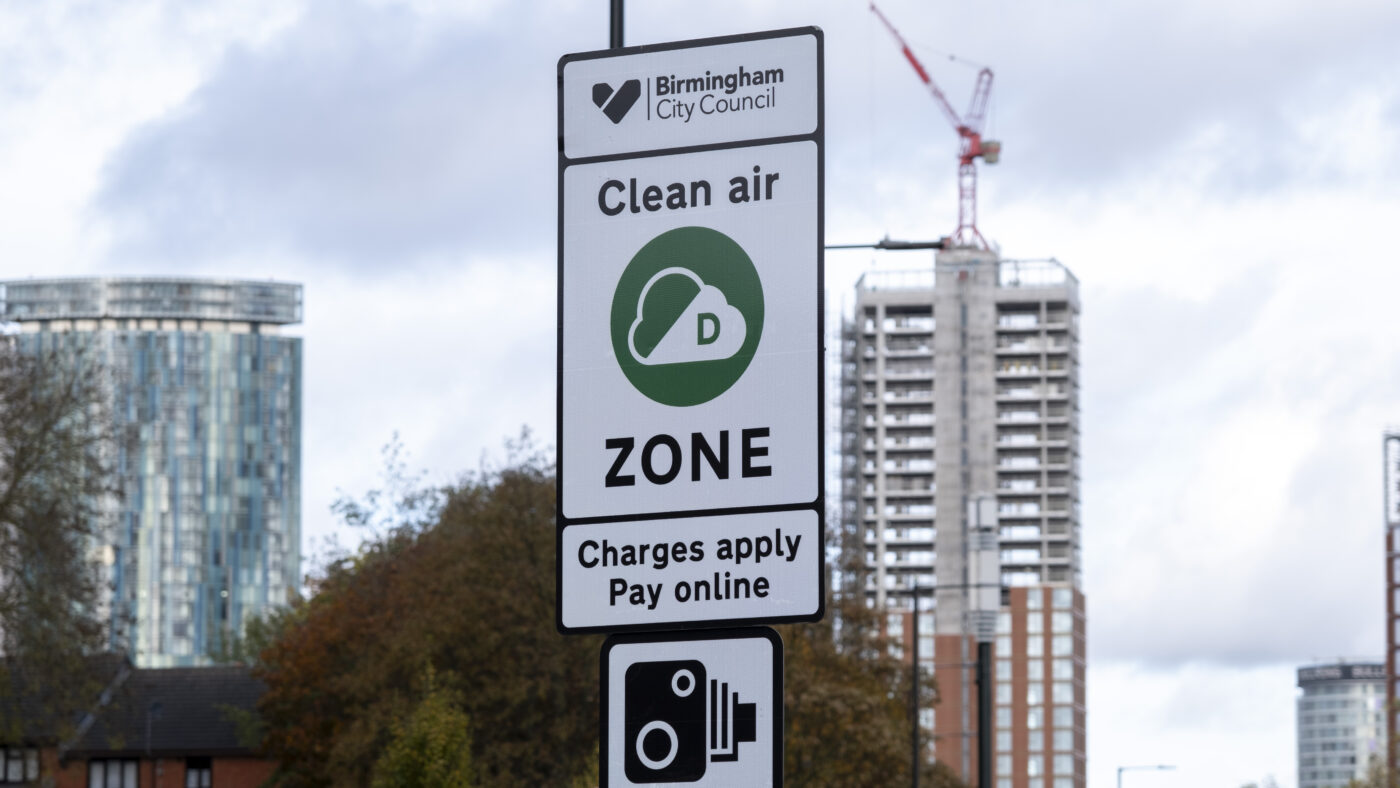Despite their effectiveness at reducing deadly air pollution, Clean Air Zones (CAZ) have proven highly divisive and politically unpopular. To become less contentious, CAZs must be made fairer. Bright Blue’s latest report, Up in the air? Delivering cleaner air in a socially just way, offers a path forward.
It is clear that pollution from transport, namely NO2 (nitrogen dioxide), poses a significant risk to public health. Exposure to high concentrations of NO2 air increases the risk of a host of health issues such as lung cancer and heart disease, and is estimated to cause up to 19,000 premature deaths in the UK per year. Making matters worse, air pollution’s harmful effects hit deprived areas the hardest.
To reduce the serious health risks from air pollution, CAZs have been introduced across England. CAZs are areas where a local authority applies charges on vehicles for entry into a specific urban area to deliver NO2 reductions. Previous studies have suggested that they can substantially reduce pollution; within Bath’s CAZ, average annual NO2 concentrations reduced by 21%, from 2019 to 2021 and in Birmingham’s CAZ, average annual NO2 concentrations declined by 20%, from 2019 to 2021.
However, existing CAZs have several problems. First, they offer insufficient scrappage schemes to cover vehicle replacement costs. The ULEZ scrappage scheme, the most generous to date, offers every Londoner a £2,000 grant to scrap a non-compliant car, with higher grants available for other vehicles, such as those with wheelchair access. Nonetheless, the support offered is insufficient. According to AutoTrader, the median cost of a ULEZ-compliant second-hand car in August 2023 was over £18,000, far more than the available grants. Finding a compliant and affordable vehicle is thus a major barrier for those on low incomes.
Second, CAZs fail to adequately consider the availability of alternative modes of transportation, which is especially an issue for people living in outer urban areas and disabled people. Both these problems impose additional costs at a time when many are already financially struggling. As a result, CAZs have proven controversial. Their contentiousness was reflected in the three focus groups conducted for Bright Blue’s report where one participant even described the Ultra Low Emission Zone (ULEZ), the London equivalent of a CAZ, as ‘evil’. Such negative opinions, often driven by CAZs’ failure to account for the needs of lower-income households, were felt most strongly among participants from places where a CAZ had been implemented. By contrast, focus group participants from Liverpool, a city without a CAZ, viewed them more favourably and even as ‘a great idea’.
So, while some people remain open to CAZs, at least conceptually, for CAZs to be more fully embraced, the current Government needs to lessen the burden CAZs place on disadvantaged groups.
There is still an urgent need to reduce air pollution and to reduce it justly. Bright Blue’s new report proposes three pragmatic ways to make CAZs fairer and, by doing so, to reduce the hostility towards them.
First, we need more generous scrappage schemes. To address this, Bright Blue’s report recommends that local authorities should be allowed to seek ‘reasonable profits’ from their CAZs, to better fund targeted scrappage schemes, which they are currently forbidden to do. This prohibition is counterproductive: it fails to reduce the disproportionate costs shouldered by low-income individuals. In contrast, Bright Blue’s policy proposal would increase financial support for those on low-incomes to replace their vehicle, in turn lessening controversy around CAZs.
Second, CAZs appear to ignore the fact that the quality of public transport varies within cities. For example, the quality of public transport is far worse in outer compared to inner London, so ULEZ penalises those in living in outer city areas, where car use is more of a necessity. We therefore recommend that CAZs have different charges for driving in inner cities and outer urban areas.
Lastly, to ensure CAZs do not unfairly disadvantage those for whom switching transportation mode may not be an option, it is crucial that all Blue Badge holders are exempt from CAZ charges. Shockingly, some CAZs do not provide any exemptions for Blue Badge holders, while others only provided time-limited, temporary exemptions. This must be rectified.
These recommendations may not fully ameliorate concerns with CAZs, but they will tangibly reduce the burden placed on those with low incomes.
While air pollution remains a serious risk to public health, CAZs can substantially reduce harmful pollutants, yet, if their costs are disproportionately shouldered by low-income groups, hostilities towards CAZs are unlikely to ease. By implementing the recommendations proposed in Bright Blue’s report the Government can reduce air pollution, effectively and fairly.
Click here to subscribe to our daily briefing – the best pieces from CapX and across the web.
CapX depends on the generosity of its readers. If you value what we do, please consider making a donation.


